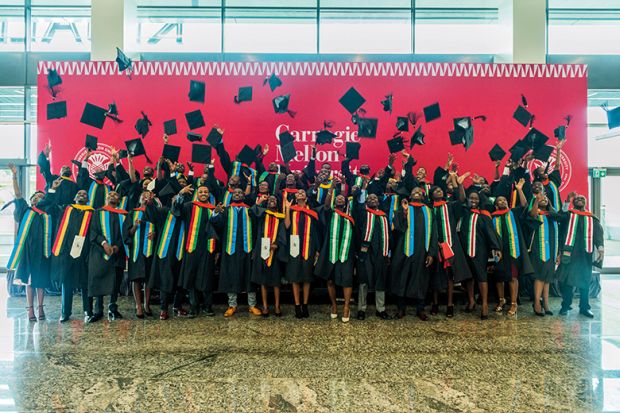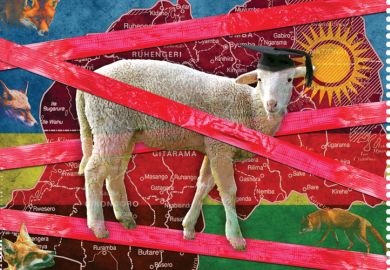Carnegie Mellon University’s seven-year-old African operation is moving into its new campus in Rwanda already ranked as the biggest branch of any US research institution on the continent, with plans to now double in size.
“We see this as a long-term opportunity,” Carnegie Mellon’s provost, James H. Garrett Jr, said after returning from CMU-Africa’s latest graduation ceremony, honouring 51 new graduates.
The fresh diplomas bring CMU-Africa’s total alumni to nearly 200, just as the university is moving from its initial temporary facilities in Kigali to its new 37-acre (15-hectare) Kigali Innovation City.
For now, CMU-Africa offers two master’s degree programmes, of two years each – in information technology, and in electrical and computer engineering – with plans to add offerings and grow from about 150 students to 300.
“You stand and look at it,” Dr Garrett said, recalling last month’s ceremony in Kigali, where relatives of graduates cried while realising how thoroughly their lives were being changed, “and you say, ‘This is having the kind of impact that a global university like Carnegie Mellon should be having’.”
Some US universities, including Stanford and Harvard, do offer a few course options in Africa, typically with a local institution or other partner. But while US universities have dozens of operations worldwide, almost none are permanent Africa-based campuses.
“They might have misjudged,” Dr Garrett said of US universities that chose other parts of the world. “There are a lot of quality students on the continent.”
Meanwhile Africa’s potential for growth in higher education is getting heavy attention from China, for now mostly in the form of students travelling to Chinese institutions. More than 60,000 African students are studying in China, 20 times the level of 13 years ago, much of that subsidised by the Chinese government.
CMU has a “tremendous opportunity” to “develop trust and relationships” across the continent, Dr Garrett said. And Rwanda, with one of Africa’s best records in fighting corruption, is a prime location, he added.
Some, however, harbour doubts about financial viability. While some foreign colleges operating in Africa largely serve the children of elites who can afford Western levels of tuition, Dr Garrett said that CMU-Africa aims to serve talent across a range of income levels.
To do that, CMU-Africa reached an agreement in which the Rwandan government in essence covers annual tuition costs of about $16,000 (£13,000) a year per student. That makes CMU-Africa free for students from Rwanda and partially subsidised for those from East African countries.
Without that government aid, and some significant outside foundation support, Dr Garrett said, many of CMU-Africa’s students would not be able to attend.
One critic is David Himbara, a former economic adviser to Rwandan president Paul Kagame, who helped open the campus seven years ago. Mr Kagame led the rebel force that ended the 1994 Rwandan genocide, and took power after then, attracting both admiration for his decisive action and fear of his authoritarian style.
Dr Himbara, now scholar-in-residence at Centennial College in Toronto, complained last year that student enrolment at CMU-Africa had not met projections necessary for it to relieve the government of the subsidy that Mr Kagame authorised.
Dr Garrett said he could not discuss budget figures, but anticipates CMU-Africa reaching the 300-student capacity of its new campus within five to 10 years.
“I don’t see us continuing to grow, grow, grow” after that point, Dr Garrett said. “But what I do see us doing is working to have impact in the communities, working with other universities, working with local organisations” to spread the economic benefit of CMU-Africa’s training, he said.
“There’s oftentimes a mentality that Africa is still more of a philanthropic activity or sort of like aid,” Dr Garrett said. For CMU, he added, “it’s not so much aid, but investment”.
Register to continue
Why register?
- Registration is free and only takes a moment
- Once registered, you can read 3 articles a month
- Sign up for our newsletter
Subscribe
Or subscribe for unlimited access to:
- Unlimited access to news, views, insights & reviews
- Digital editions
- Digital access to THE’s university and college rankings analysis
Already registered or a current subscriber?








